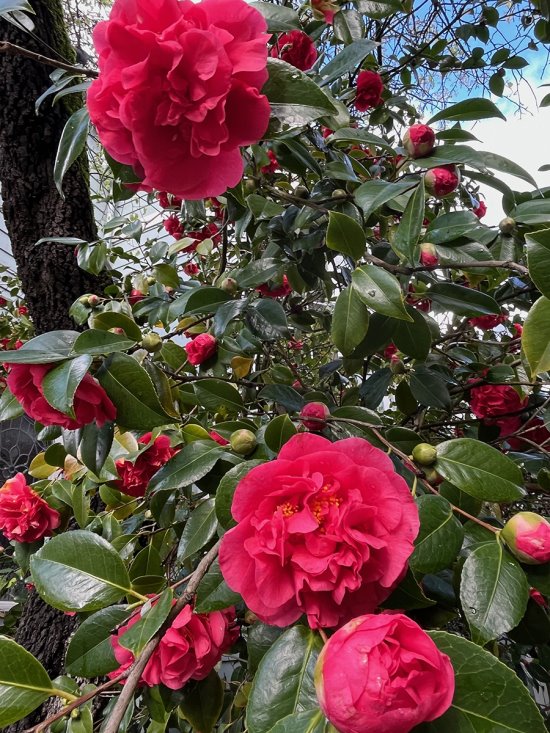
|
||||||
Walking around my property, I am in awe of how quickly my landscape has come to life. Within just a couple of weeks, the garden has awoken from its deep sleep blanketing the hillside with lush green grasses and fantastic flowers. The frogs are croaking, the birds are chirping, and the bees are buzzing. Despite the continuing rain, nature is waking up from its soggy slumber.
My garden is a living laboratory where I design borders to include a diverse mix of plants including bulbs, perennials, annuals, shrubs, trees, and vines. Originally my color palette was strictly pinks, purples, blues, and whites, but over the years I have acknowledged the beauty of all color combinations. Daring forms and textures are welcome as I attempt to create a naturalistic style. Taking cues from Mother Nature, I encourage self-sowing specimens (thank you calendula and nigella) and I prefer my landscape to be full, a bit crowded, and wild. Rocks, stones, and gravel are incorporated into the scheme while vintage used bricks delineate the paths.
If you'd like to create a garden that respects the natural world, here are a few tips that may help.
1. Don't be afraid to mix and match. Shrubs and trees provide structure. Bulbs pop up as surprises, especially at this time of year. Perennials are the main attraction with annuals affording the colors you desire throughout the year.
2. Always plant in swaths or groups. Repeating the groups coalesces and unifies the look.
3. Invite specimens that you like to self-sow. Allow plants to grow as they would in nature without your assistance. Don't fret when stray flowers appear in an area where you didn't plan to have them grow. Whimsical is fun.
4. When it comes to coordinating colors, be open to the bold and beautiful. I never thought I'd like so much orange and yellow in my landscape, but the combination of daffodils, calendula, and poppies has changed my mind.
5. Strive for balance. A clipped hedge is wonderful surrounding a formal rose garden, or outlining a driveway, yet when a garden is too heavily manicured it appears almost fake.
Allow for some spillers, fillers, and thrillers. Add elements of awe.
6. Use containers for a variety of plants, including small trees. I have an Italian white peach growing in a container that boasts beautiful bright pink blossoms with fluorescent yellow oxalis underplanted. It is quite the unexpected showstopper. As a bonus, when the peaches are ripe, they are easy to harvest.
7. Orchestrate seasonal displays with plenty of colorful and textural annuals, perennials, grasses, and bulbs. Natives and carefully chosen non-natives will thrive happily together. With a plentiful variety of plants, pollinators will call your garden home and become your trusted helpers.
What's Blooming Now?
*Bradford pear, plum, and peach trees
*Azaleas and camellias
*Daffodils
*Tulips
*Calla lilies
*Bergenia
*Calendula
*Cyclamen
*Salvia Hot Lips
*Muscari
*Iris
*Primrose
*Lilies of the Valley
*Christmas cactus
*Periwinkle
*Oxalis
*Freesia
*Viburnum
*Hellebore
*Jade
*Potato Vine
*Chinese Fringe
*Mustard
The Goddess Gardener's March Garden Guide
- DEFINE property boundaries and create curb appeal with flowering shrubs. Numerous new varieties of hydrangea are a good choice.
- SPRAY roses, crepe myrtles, pittosporum, iris, boxwood, rhododendron, laurel, fruit, and citrus trees with organic dormant oil and copper fungicide. This treatment will help to protect the trees and shrubs from overwintering insects and fungal diseases. Wash the citrus before consumption.
- POUR chamomile tea around the base of newly planted seedlings to eliminate fungus growth.
- DISPLAY fallen camellias on a hedge, ledge, or pathway for outside interest that are not pretty enough to float in a vase, but not rotten enough to toss in the compost bin. As the camellias wilt, dispose of them.
- FERTILIZE hungry lawns anytime in March to strengthen roots, and resist cold, heat, and high traffic when the weather is wet.
- PRUNE fig trees and grapevines. Dry the branches and cuttings to use in your smoker or barbecue this summer to add interesting flavors to your grilled specialties.
- WATER houseplants while you are on vacation by filling a plastic bottle with water, piercing the neck of the bottle with an ice pick, and burying the bottle with the neck down. Your plant will slowly drink as needed.
- PATIENCE: St. Patrick's Day is around the corner. Spring is only a few weeks away.
Hang in there for the rest of winter and watch for the reawakening.
Go out for a walk and stay until sundown! Going out is going in!
Happy Gardening. Happy Growing.
Numerous other plants are budding and will be gracing our gardens soon. Stay tuned!.
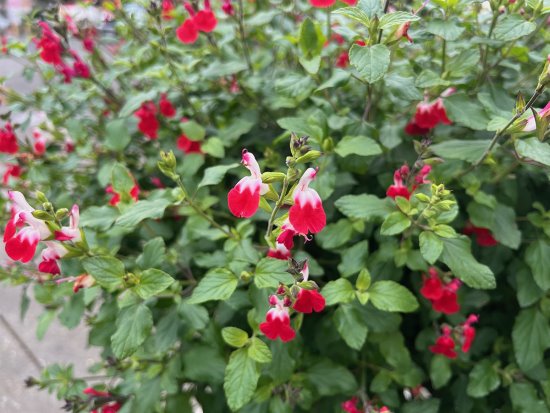
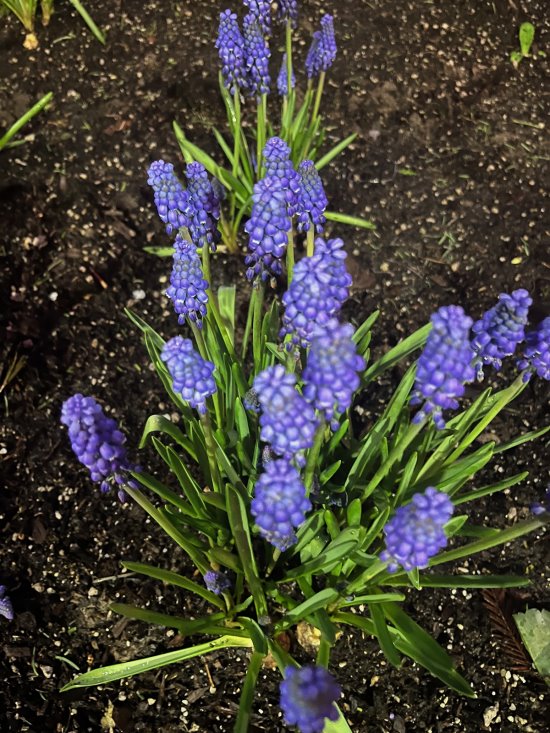
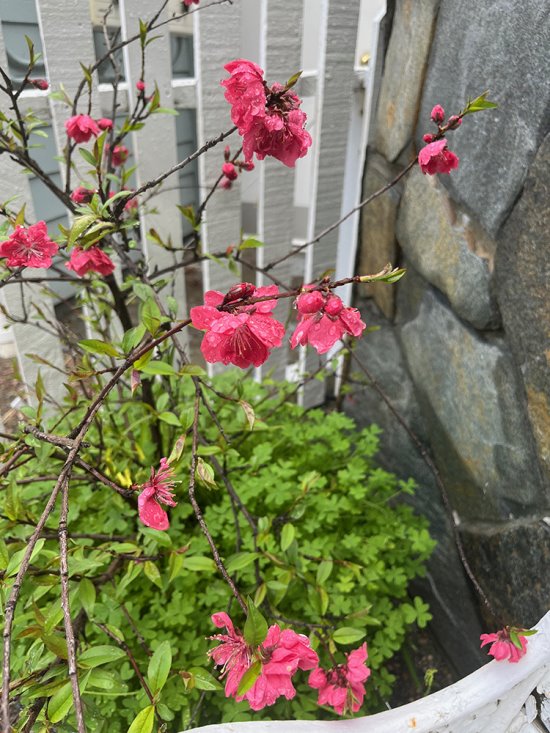
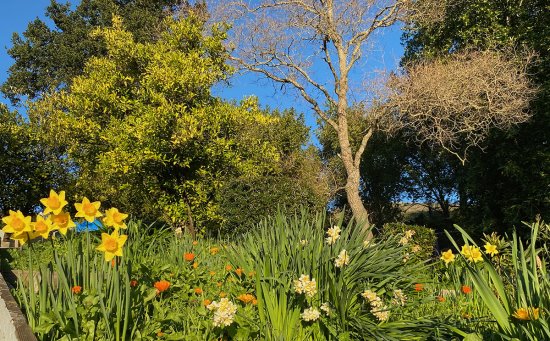
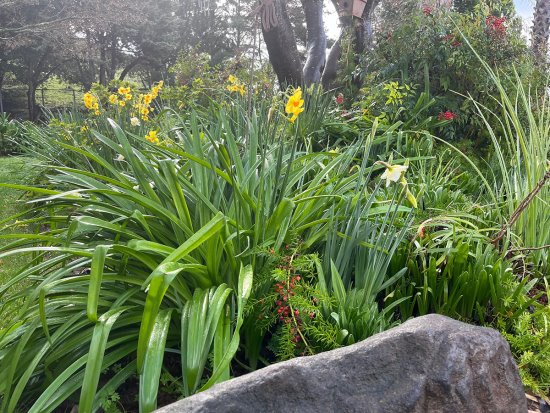
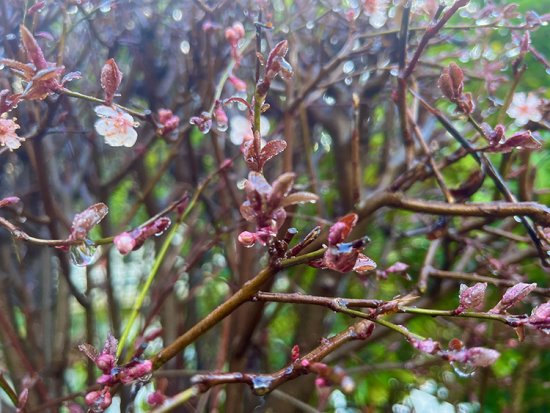

For more gardening advice for all seasons, check out Growing with the Goddess Gardener at https://www.CynthiaBrian.com/books. Raised in the vineyards of Napa County, Cynthia Brian is a New York Times best-selling author, actor, radio personality, speaker, media and writing coach as well as the Founder and Executive Director of Be the Star You Are!r 501 c3. Tune into Cynthia's StarStyler Radio Broadcast at www.StarStyleRadio.com. Her newest children's picture book, Family Forever, from the series, Stella Bella's Barnyard Adventures is available now at https://www.CynthiaBrian.com/online-store. Hire Cynthia for writing projects, garden consults, and inspirational lectures. Cynthia@GoddessGardener.com https://www.CynthiaBrian.com
Reach the reporter at:
